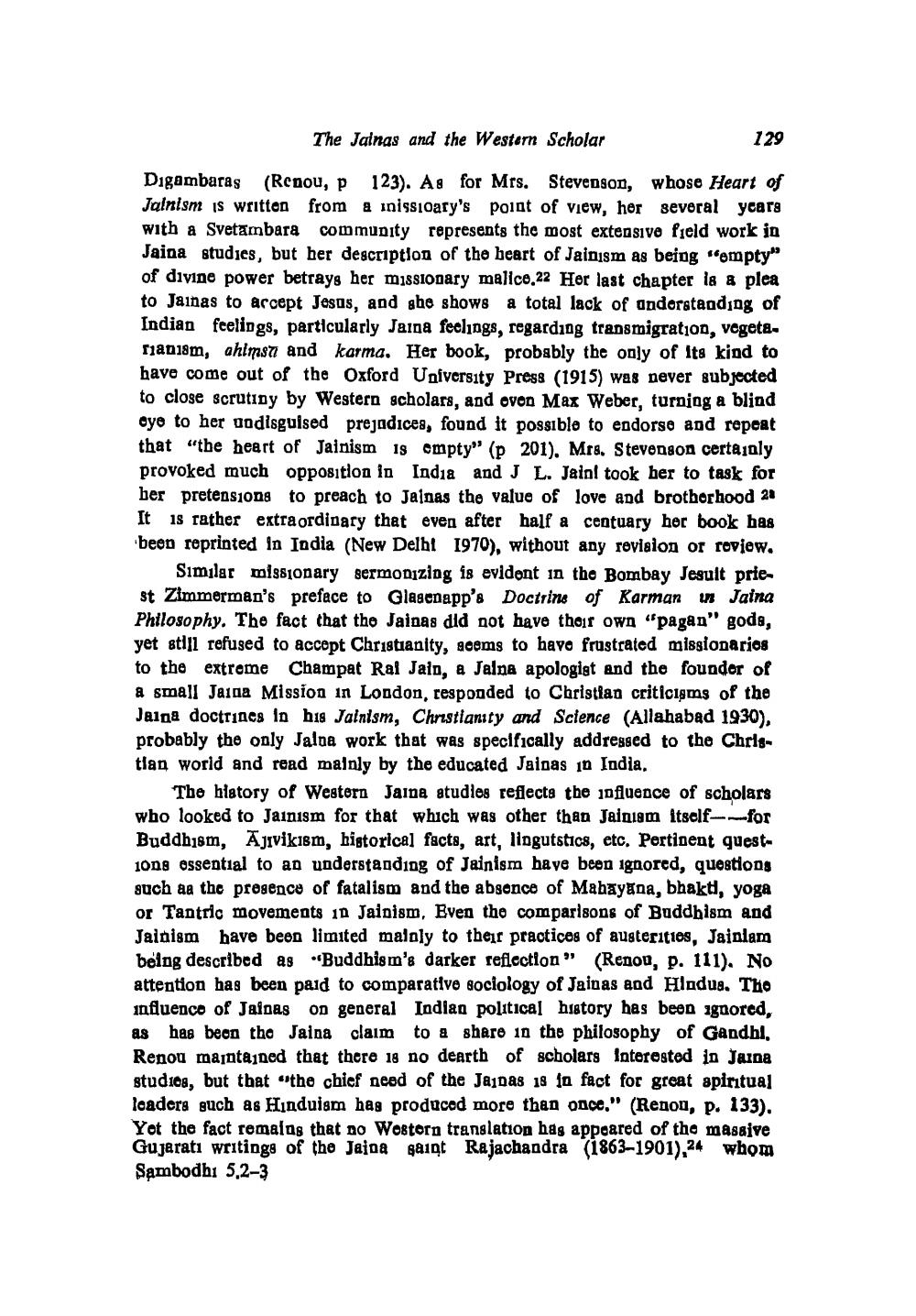________________
The Jainas and the Western Scholar
Digambaras (Renou, p 123). As for Mrs. Stevenson, whose Heart of Jainism is written from a inissioary's point of view, her several years with a Svetambara community represents the most extensive field work in Jaina studies, but her description of the heart of Jainism as being "empty" of divine power betrays her missionary malice.22 Her last chapter is a plea to Jainas to accept Jesus, and she shows a total lack of understanding of Indian feelings, particularly Jaina feelings, regarding transmigration, vegetaгianism, ahimsa and karma. Her book, probably the only of its kind to have come out of the Oxford University Press (1915) was never subjected to close scrutiny by Western scholars, and even Max Weber, turning a blind eye to her undisguised prejudices, found it possible to endorse and repeat that "the heart of Jainism 1s empty" (p 201). Mrs. Stevenson certainly provoked much opposition in India and J L. Jain! took her to task for her pretensions to preach to Jainas the value of love and brotherhood 2 It is rather extraordinary that even after half a centuary her book has been reprinted in India (New Delh! 1970), without any revision or review. Similar missionary sermonizing is evident in the Bombay Jesuit priest Zimmerman's preface to Glasenapp's Doctrine of Karman in Jaina Philosophy. The fact that the Jainas did not have their own "pagan" gods, yet still refused to accept Christianity, seems to have frustrated missionaries to the extreme Champat Rai Jain, a Jalna apologist and the founder of a small Jaina Mission in London, responded to Christian criticisms of the Jaina doctrines in his Jainism, Christianity and Science (Allahabad 1930), probably the only Jalna work that was specifically addressed to the Christlan world and read mainly by the educated Jainas in India.
129
The history of Western Jaina atudies reflects the influence of scholars who looked to Jainism for that which was other than Jainism itself--for Buddhism, Ajvikism, historical facts, art, lingutstics, etc. Pertinent questions essential to an understanding of Jainism have been ignored, questions such as the presence of fatalism and the absence of Mahayana, bhakti, yoga or Tantric movements in Jainism, Even the comparisons of Buddhism and Jainism have been limited mainly to their practices of austerities, Jainlam being described as "Buddhism's darker reflection " (Renou, p. 111). No attention has been paid to comparative sociology of Jainas and Hladus. The influence of Jainas on general Indian political history has been ignored, as has been the Jaina claim to a share in the philosophy of Gandhi, Renou maintained that there 18 no dearth of scholars Interested in Jaina studies, but that "the chief need of the Jainas 18 in fact for great spiritual leaders such as Hinduism has produced more than once." (Renon, p. 133). Yet the fact remains that no Western translation has appeared of the massive Gujarati writings of the Jaina saint Rajachandra (1863-1901),24 whom Sambodhi 5,2-3




